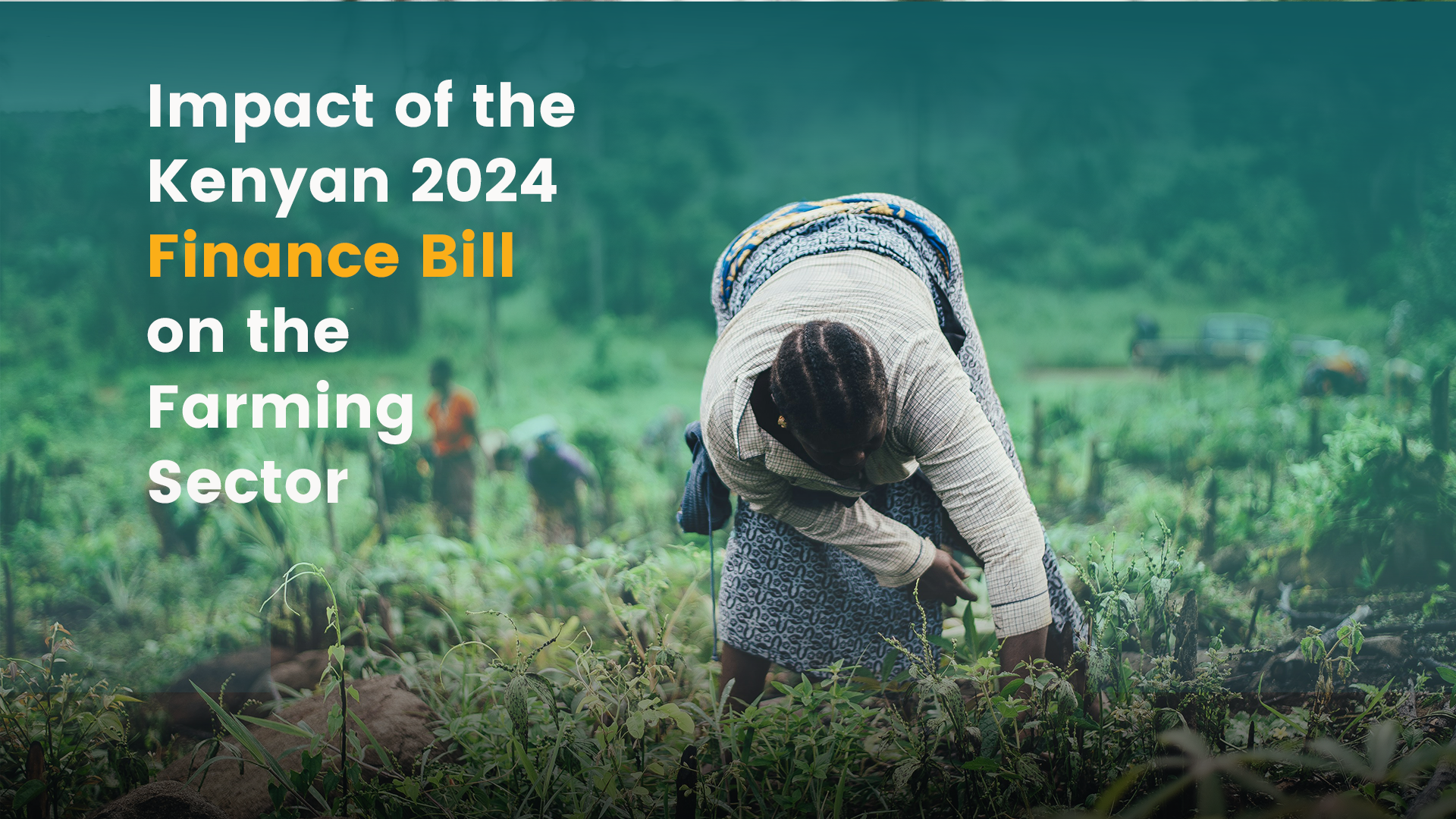
The Kenya Finance Bill 2024 introduces a range of tax policy changes that are aimed at increasing government revenue. While the bill has broad economic implications, its specific impact on women and youth in the agricultural sector deserves focused attention. Women and youth are key to the future of Kenya’s agriculture, but they face unique challenges that can be worsened or alleviated by such legislative changes.
In this blog we explore how the Finance Bill 2024 affects these groups, detailing both the negative and positive impacts.
Negative impacts of the Finance Bill
How does the finance bill negatively affect women and youth in agriculture?
Increased costs for farming inputs
Excise duties on fuel
One of the major changes introduced by the Finance Bill 2024 is the increase in excise duty on fuel, raising it from KES 21.95 per liter to KES 24.95 per liter. This increase directly impacts the cost of farming operations, including planting, harvesting, and transporting produce.
For women and youth who are trying to venture into agriculture, while operating on limited budgets, these higher costs can be particularly burdensome. Fuel costs are a substantial part of agricultural expenses, and any increase can squeeze already tight profit margins, making it more challenging for small-scale farmers to sustain their businesses.
VAT on agricultural inputs
The bill also removes VAT exemptions on essential agricultural inputs like fertilizers, pesticides, and seeds, subjecting them to the standard VAT rate of 16%. This change means that the cost of these inputs will rise by 16%, further increasing the financial burden on farmers.
Youth and women in agriculture often lack access to credit or other financial resources, this can result in reduced use of necessary inputs, leading to lower yields and decreased productivity. The higher costs can discourage investment in quality inputs, ultimately impacting food security and income levels.
Freight costs
The Finance Bill 2024 increases the freight tax on non-resident shipowners or operators from 2.5% to 3%. This hike raises the cost of imported agricultural inputs and exported produce. Kenya imports a significant portion of its farm inputs via sea, and the increased costs will affect its affordability.
Small-scale women and youth agripreneurs depend on affordable inputs to sustain their agricultural activities. The increase in freight costs will make it harder for them to maintain their operations profitably. Additionally, higher export costs can make Kenyan agricultural products less competitive in international markets, reducing the revenue potential for young and women farmers involved in export-oriented farming.
Positive Impacts of the Finance Bill
Can the finance bill impact agriculture positively? Yes, it can and this is how:
Investment incentives
Despite the challenges, the Finance Bill 2024 introduces some positive changes that could benefit women and youth in agriculture. Notably, it includes a 10% per annum investment allowance on specific agricultural equipment and infrastructure. This incentive can encourage investment in modern farming technologies, which can increase productivity and efficiency.
Agripreneurs who can access these technologies will be better positioned to scale their operations and enhance their profitability. Modern equipment and infrastructure can lead to better resource management, higher yields, and improved resilience to climate change and other challenges.
Revenue utilization for agricultural support
The additional revenue generated from the increased taxes can potentially be used to fund agricultural research, extension services, and rural infrastructure development. These investments can enhance overall productivity and sustainability in the agricultural sector, providing indirect benefits to women and youth.
Improved extension services can offer these groups better access to knowledge and best practices, while enhanced infrastructure can reduce the costs and difficulties associated with transporting goods to markets. Effective utilization of this revenue could mitigate some of the negative impacts of the higher taxes.
Real-world examples and lessons
Negative impact examples
- India: The introduction of the Goods and Services Tax (GST) on agricultural inputs led to increased costs for farmers and reduced profitability. Farmers faced higher prices for seeds, fertilizers, and equipment, affecting their production capacity. This situation highlights the risks associated with increasing the costs of essential inputs without providing adequate support measures.
- Brazil: High taxes on agricultural exports have sometimes led to reduced competitiveness in global markets and lower export volumes. This example underscores the importance of balancing taxation with the need to maintain competitiveness in international markets.
Beneficial impact examples
- Netherlands: Investment incentives in agriculture have led to significant technological advancements, making it one of the most productive agricultural sectors in the world. Government policies supporting innovation and efficiency have enhanced productivity and sustainability.
- Israel: Government support and tax incentives for water-saving technologies have transformed the agricultural sector, increasing productivity and sustainability. These policies have helped Israel maximize agricultural output despite limited water resources.
Conclusion
The Kenya Finance Bill 2024 brings a mix of challenges and opportunities for women and youth in agriculture. While increased excise duties, VAT on inputs, and freight taxes pose significant challenges, the bill’s investment incentives and potential revenue utilization offer pathways to mitigate these challenges. Effective implementation and targeted support will be crucial in ensuring that women and youth can continue to thrive in the agricultural sector, contributing to Kenya’s food security and economic growth.
References
- World Bank. “Agriculture and Rural Development.”
- Food and Agriculture Organization (FAO). “The Impact of Disasters and Crises on Agriculture and Food Security.”
- Intergovernmental Panel on Climate Change (IPCC). “Climate Change and Land.”
- Government of Kenya. “Finance Bill 2024.
